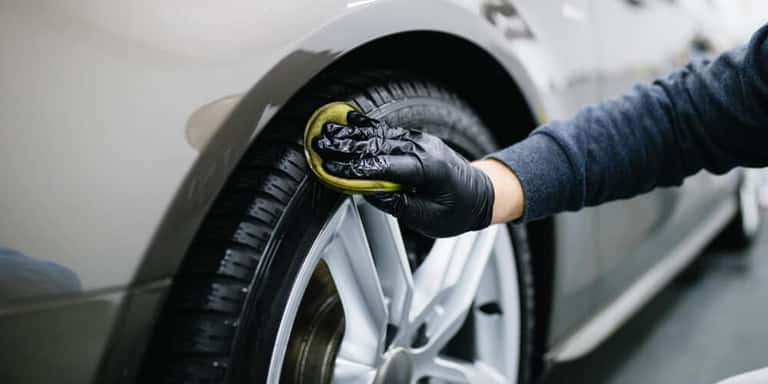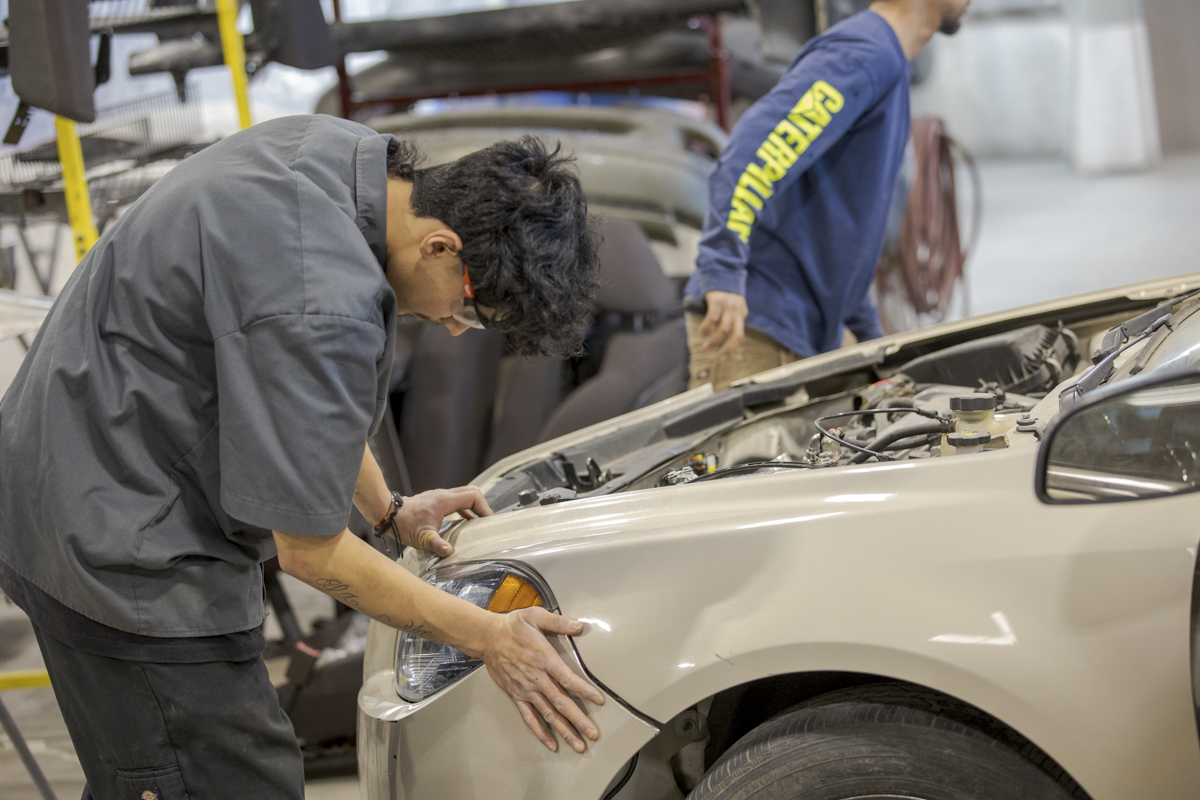The exhaust system in your car plays an important duty in decreasing damaging emissions, making sure proper engine efficiency, and keeping the overall performance of your automobile. With time, however, elements of the exhaust system can wear out, resulting in issues that need prompt interest. Whether you're hearing unusual sounds, smelling uncommon odors, or discovering a drop in performance, understanding just how to fix or change your exhaust system can conserve you time, cash, and stop additional damage to your car.
Usual Indicators of Exhaust System Problems. Before diving right into the repair or substitute process, it is very important to recognize when your exhaust system requires focus. Common signs and symptoms of exhaust system troubles consist of:
Uncommon or loud Sounds: A loud hissing or rolling noise frequently shows an opening or fracture in the exhaust pipe, muffler, or various other components. This generally happens as a result of rust or damages. Foul Odors: If you see a strong, unpleasant scent, maybe an indication that your catalytic converter or muffler is falling short. This can cause hazardous exhaust fumes getting in the cabin. Decreased Fuel Performance: A malfunctioning exhaust system can influence your cars and truck's fuel economic situation. If you locate on your own filling out the storage tank extra often than common, the exhaust system may be the culprit. Check Engine Light: If the exhaust system is not functioning effectively, the oxygen sensors or various other elements could set off the check engine light. If you're experiencing any of these issues, it's time to evaluate or fix your exhaust system.
Fixing the Exhaust System. For minor damage or leaks, repairing the exhaust system may be feasible with a couple of easy actions:
![]()
Locate the Issue: Begin by inspecting the exhaust pipelines, muffler, and other components for indications of noticeable damages. Little openings or cracks in the pipes can sometimes be repaired with exhaust tape or high-temperature sealant.
Exhaust Secures: If there's a loosened link or joint between parts of the exhaust system, you might have the ability to tighten up or replace the exhaust secures. This can stop leaks and recover typical feature.
Replace the Muffler: If the muffler is the resource of the concern, replacing it might be required. Mufflers break in time and can corrosion or create holes. A substitute muffler can decrease noise and bring back optimum function to your automobile.
DIY Repair Kits: For little leakages, there are exhaust repair kits readily available that come with spots and clamps to briefly seal the concern. While this can be a fast solution, it may not be a long-term remedy.
If you're uncomfortable or not sure with the procedure, it's best to seek advice from a mechanic to avoid further damage.
When to Change the Exhaust System. While small fixings may be convenient, there are situations where replacing the entire exhaust system is the most effective choice. Trick signs you may need a complete replacement include:
Extensive Corrosion: Over deterioration, time and rust can trigger the pipes to compromise and also collapse. Substitute is necessary if the exhaust system is drastically rusted or damaged in numerous locations. Damaged Catalytic Converter: If the catalytic converter is malfunctioning or clogged, it can affect engine performance and discharges. This is a costly part to replace however essential for your cars and truck's total wellness. Fractured Exhaust Manifold: The exhaust manifold attaches the engine to the exhaust system, and splits can result in leakages. Changing this part is commonly an extra involved procedure and may need professional aid. Expert Assistance vs. DIY. While minor fixings can typically be completed at home, changing major parts of the exhaust system, such as the catalytic converter, exhaust manifold, or full exhaust pipes, is ideal entrusted to specialists. The work needs specialized tools and understanding to make certain everything is correctly straightened and working. Additionally, inaccurate setup can cause additional concerns, such as exhaust leaks or bad vehicle performance.
Mechanics will certainly likewise be able to make certain that the repairs follow emission regulations in your location, which is especially essential if you need to pass an automobile evaluation.
![]()
Final thought. Repairing or changing your auto's exhaust system can enhance your automobile's performance, gas performance, and lower hazardous exhausts. If your exhaust system is significantly harmed, a full replacement might be needed.
Usual Indicators of Exhaust System Problems. Before diving right into the repair or substitute process, it is very important to recognize when your exhaust system requires focus. Common signs and symptoms of exhaust system troubles consist of:
Uncommon or loud Sounds: A loud hissing or rolling noise frequently shows an opening or fracture in the exhaust pipe, muffler, or various other components. This generally happens as a result of rust or damages. Foul Odors: If you see a strong, unpleasant scent, maybe an indication that your catalytic converter or muffler is falling short. This can cause hazardous exhaust fumes getting in the cabin. Decreased Fuel Performance: A malfunctioning exhaust system can influence your cars and truck's fuel economic situation. If you locate on your own filling out the storage tank extra often than common, the exhaust system may be the culprit. Check Engine Light: If the exhaust system is not functioning effectively, the oxygen sensors or various other elements could set off the check engine light. If you're experiencing any of these issues, it's time to evaluate or fix your exhaust system.
Fixing the Exhaust System. For minor damage or leaks, repairing the exhaust system may be feasible with a couple of easy actions:

Locate the Issue: Begin by inspecting the exhaust pipelines, muffler, and other components for indications of noticeable damages. Little openings or cracks in the pipes can sometimes be repaired with exhaust tape or high-temperature sealant.
Exhaust Secures: If there's a loosened link or joint between parts of the exhaust system, you might have the ability to tighten up or replace the exhaust secures. This can stop leaks and recover typical feature.
Replace the Muffler: If the muffler is the resource of the concern, replacing it might be required. Mufflers break in time and can corrosion or create holes. A substitute muffler can decrease noise and bring back optimum function to your automobile.
DIY Repair Kits: For little leakages, there are exhaust repair kits readily available that come with spots and clamps to briefly seal the concern. While this can be a fast solution, it may not be a long-term remedy.
If you're uncomfortable or not sure with the procedure, it's best to seek advice from a mechanic to avoid further damage.
When to Change the Exhaust System. While small fixings may be convenient, there are situations where replacing the entire exhaust system is the most effective choice. Trick signs you may need a complete replacement include:
Extensive Corrosion: Over deterioration, time and rust can trigger the pipes to compromise and also collapse. Substitute is necessary if the exhaust system is drastically rusted or damaged in numerous locations. Damaged Catalytic Converter: If the catalytic converter is malfunctioning or clogged, it can affect engine performance and discharges. This is a costly part to replace however essential for your cars and truck's total wellness. Fractured Exhaust Manifold: The exhaust manifold attaches the engine to the exhaust system, and splits can result in leakages. Changing this part is commonly an extra involved procedure and may need professional aid. Expert Assistance vs. DIY. While minor fixings can typically be completed at home, changing major parts of the exhaust system, such as the catalytic converter, exhaust manifold, or full exhaust pipes, is ideal entrusted to specialists. The work needs specialized tools and understanding to make certain everything is correctly straightened and working. Additionally, inaccurate setup can cause additional concerns, such as exhaust leaks or bad vehicle performance.
Mechanics will certainly likewise be able to make certain that the repairs follow emission regulations in your location, which is especially essential if you need to pass an automobile evaluation.

Final thought. Repairing or changing your auto's exhaust system can enhance your automobile's performance, gas performance, and lower hazardous exhausts. If your exhaust system is significantly harmed, a full replacement might be needed.
Latest Posts
Professional Chevrolet Service Designed to Last – Rely on Hallman Chevrolet Now!
Published Dec 25, 24
1 min read
How the 2025 Chevrolet Malibu Stands Out in the Midsize Car Market
Published Dec 25, 24
0 min read
Transform Rankings with Confluence's Generative SEO Expertise
Published Dec 25, 24
1 min read
Navigation
Home
Latest Posts
Professional Chevrolet Service Designed to Last – Rely on Hallman Chevrolet Now!
Published Dec 25, 24
1 min read
How the 2025 Chevrolet Malibu Stands Out in the Midsize Car Market
Published Dec 25, 24
0 min read
Transform Rankings with Confluence's Generative SEO Expertise
Published Dec 25, 24
1 min read